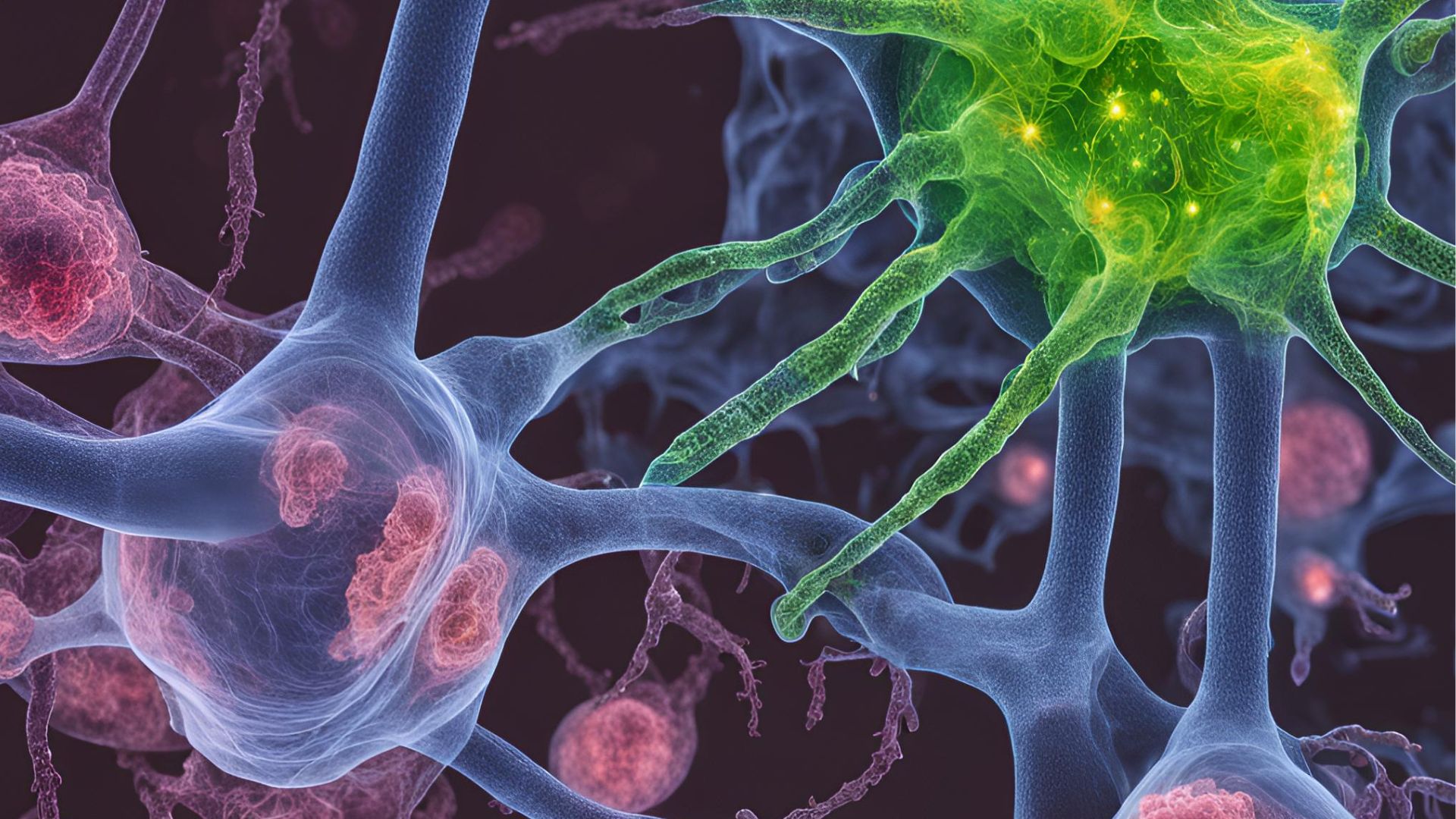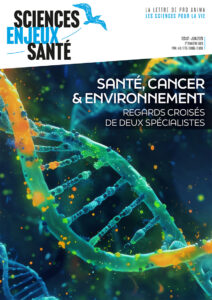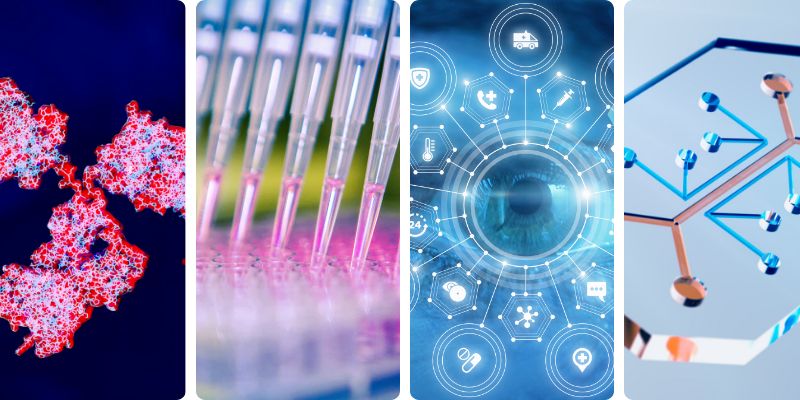
DVES 2025 Prize — Call for application, The race for AI-discovered drugs, OrganoIDNet : deep learning and organoids to treat pancreatic cancer, and more
News on non-animal methods
JUNE 10 - 14, 2024NEWS, REPORTS & POSITION STATEMENTS
1. Big Pharma steps up race for AI-discovered drugs
Pharmaceutical giants, including Swiss firms Roche and Novartis, are betting big on artificial intelligence to discover new drugs to treat a range of diseases. AI’s potential to discover new drug candidates, in a fraction of the time and cost as traditional approaches, has fueled an AI investment boom. Over the past decade investors have pumped more than $18 billion into some 200 “AI-first” biotech firms and start-ups, those where AI is central to their drug discovery workflow, according to a Boston Consulting Group study published last year.
Large pharmaceutical labs have been using computers to assist drug development for decades but until recently there was some reticence to rely too heavily on AI. Today, the mindset has changed.
2. Survey on the impact of OoC technology on pharmaceutical R&D costs
Healthcare systems are faced with the challenge of providing innovative treatments, while shouldering high drug costs that pharmaceutical companies justify by the high costs of R&D. An emergent technology that could transform R&D efficiency is organ-on-a-chip (OoC). The OoC technology bridges the gap between preclinical testing and human trials through better predictive models, significantly impacting R&D costs.
Franzen et al. present an expert survey on the future role of organ-on-a-chip in drug discovery and its potential quantitative impact. Also discussing regulatory challenges to efficiency improvements, the authors detail their survey and how the technology has the potential to reduce R&D costs significantly (by 10 – 26%), driven by changes in direct costs, success rates and the length of the R&D process.
3. The limits of interspecies differences in humans and rats for toxicological assessment
A new paper published in Regulatory Toxicology and Pharmacology and co-authored by PETA Science Consortium International e.V., the US Environmental Protection Agency, the NTP Interagency Center for the Evaluation of Alternative Toxicological Methods (NICEATM), and other collaborators, demonstrates how anatomical and physiological differences in humans and rats limit the ability of rat inhalation tests to predict what will happen when humans inhale a substance.
The paper opens the doorway for harnessing modern toxicology tools and our understanding of the human respiratory tract to inform the development of non-animal testing approaches grounded in human biology.
INTERVIEWS, NOMINATIONS & AWARDS
4. Swiss 3R Prize : human skin cultures to study psoriasis
Maria Shutova, assistant professor at the Department of Medicine and the Inflammation Research Center of the Faculty of Medicine of the University of Geneva (Switzerland), was awarded the 3R Prize on June 4, 2024, for her research on psoriasis from in vitro cultures of human skin.
Psoriasis causes scales and an inflammatory reaction. Psoriasis affects between 2 and 3% of the world’s population. Current treatments are, moreover, not free from side effects. And the origin of the disease remains poorly understood. Dr Shutova’s work aimed to study the molecular mechanisms involved in psoriasis and led to the publication of a study in March 2023 in the journal IScience.
5. GlycoTherapeutics and chiron awarded the prestigious MIT Zuid-Nederland R&D subsidy
GlycoTherapeutics, a preclinical development company aiming to develop novel therapeutics targeting glycobiology processes in cancer, and chiron, a biotech developing human-like organ-on-chip models, have been awarded the prestigious MIT Zuid-Nederland R&D subsidy.
This grant, amounting to €700,000+, will propel their joint project aimed at revolutionizing cancer therapy research, focusing on developing and validating the innovative µMass microplate, a groundbreaking technology that enhances the preclinical testing of anti-cancer therapies. With this support, the two companies are poised to make significant strides in cancer research, reducing the time and cost involved in bringing new therapies to market.
6. Peter Loskill to receive the Ursula M. Händel Award
Peter Loskill, Professor at University of Tübingen, Head of Organ-on-Chip group at NMI Reutlingen, received the Ursula M. Händel Award by the Deutsche Forschungsgemeinschaft (DFG) — German Research Foundation together with Silke Riegger on behalf of the amazing 3R-Center Tübingen and MicroOrgano-Lab team. The award recognizes their work on developing novel Organ-on-Chip systems and moving them into application as well as our efforts in stakeholder-specific training and communication on next generation microphysiological systems.
The DFG awards the Ursula M. Händel Animal Welfare Prize to those scientists who are considered to have made exemplary and sustained efforts to improve the welfare of animals in research. The Ursula M. Händel Animal Welfare Prize was created on the initiative of its eponymous founder.
TOOLS, PLATFORMS, CALLS
7. DVES 2025 Prize — Call for application
Created in 2013 by the Pro Anima Scientific Committee, the EthicScience Prize became the Descroix-Vernier EthicScience (DVES) Prize in 2023, marking the convergence of the objectives and values of Pro Anima and the Fondation Descroix-Vernier.
With a total endowment of 110,000 euros rewarding 3 categories, the DVES prize is one of the best endowed prizes in Europe entirely dedicated to the most advanced, most convincing scientific and technological knowledge for alternatives to animal experiments.
The DVES 2025 Prize is now open for application ! Deadline is August 30, 2024.
Read more about the DVES Prize and the call
8. Share your thoughts on organoids, in-vitro models and health data
With the Hotel-Dieu hospital in Paris, BioValley France, BioLabs France and Orakl Oncology want to understand how to improve drug development through better — animal-free — biological models. With this purpose, the companies launch a questionnaire. The answers and feedback will contribute to their upcoming white paper “Organoids, Organs, and Health Data”.
Participation in the questionnaire until June 31.
For Hospitals / Healthcare professionals / Patients & patient associations
9. NETRI Grants : Pain Program and open grant
The French industrial start-up that develops organs-on-chip, NETRI,is committed to improving access to healthcare and supporting researchers through their high-throughput & interoperable organs-on-chip devices.
NETRI is looking for innovative projects/methods from universities and biotech companies to accelerate and increase the relevance of the selection of new drug candidates or products. They offer two kinds of grants : the Pain Program focusing on peripheral nerve disorders disorders, and an open grant for any other disease area.
10. OrganoIDNet : a deep learning tool for PDAC organoid-PBMC co-cultures from time-resolved imaging data
Pancreatic Ductal Adenocarcinoma (PDAC) remains a challenging disease due to its complex biology and aggressive behavior with an urgent need for efficient therapeutic strategies. To assess therapy response, pre-clinical PDAC organoid-based models in combination with accurate real-time monitoring are required.
Optimized PDAC organoid imaging analyzed by OrganoIDNet represents a platform capable of accurately detecting organoid responses to standard PDAC chemotherapy over time. Moreover, organoid/immune cell co-cultures allow monitoring of organoid responses to immunotherapy, offering dynamic insights into treatment behavior within a co-culture setting with peripheral blood mononuclear cells (PBMCs). This setup holds promise for real-time assessment of immunotherapeutic effects in individual patient-derived PDAC organoids.
11. Engineering brain-on-a-chip platforms
The increasing prevalence of neurological and psychiatric diseases, such as Alzheimer disease and schizophrenia, necessitates the development of new research tools to investigate these diseases and develop effective treatments.
In a new Review, Servais et al. discuss the technologies to build complex brain models, such as through the progress in microfluidic and semiconductor-based technologies that facilitate in vitro modelling of the blood – brain barrier and neuronal circuits to study pathophysiological processes. Advances in 3D tissue engineering are also addressed, as well as the exploration of the engineering challenges and opportunities for complex physiologically relevant brain-on-a-chip devices and their future progress.
Read more in Nature Review Bioengineering
INDUSTRY, BIOTECH & PARTNERSHIPS
12. AlveoliX and EpiEndo Update on their Partnership to Pioneer Ulcerative Colitis Treatment
AlveoliX, a pioneer in organ-on-chip technology, and EpiEndo Pharmaceuticals, a clinical-stage biopharmaceutical company leading in epithelial biology, announce significant milestones in their collaboration to revolutionize ulcerative colitis (UC) treatment. The EpicoliX Project is supported by a grant of EUR 1.4M from the Eureka Eurostars funding program, the Icelandic Technology Development Fund, and Innosuisse in Switzerland.
Nina Hobi, Co-CEO at AlveoliX, commented : “We have greatly valued partnering with EpiEndo in the EpicoliX Project. We have aimed to tackle the challenge of creating a gut-on-chip model, mimicking the colon epithelium of UC patients, to provide a legitimate alternative to animal testing, which is our underlying premise. We are proud to have helped progress the development of Enterothelin as a potential new therapeutic for UC. This is a significant step toward a brighter future for patients.”
SCIENTIFIC DISCOVERIES & PROTOCOLS
13. Brain overgrowth dictates autism severity
A new study using / based on brain cortical organoids (BCOs) and published in Molecular Autism by researchers at University of California San Diego, is the first to shed light on the biological basis for two subtypes of autism that develop in utero.
Researchers used blood-based stem cells from 10 toddlers, ages 1 through 4, with idiopathic autism (in which no single-gene cause was identified) to create BCOs, or models of the fetal cortex. They also created BCOs from six neurotypical toddlers. Eric Courchesne, Ph.D., a professor in the School of Medicine’s Department of Neurosciences who co-led the research with Muotri, called the study “one of a kind.”
“We found that in the brain organoids from toddlers with profound autism, there are more cells and sometimes more neurons — and that’s not always for the best,” added Muotri, who is also a professor in the Departments of Pediatrics and Cellular and Molecular Medicine at the UC San Diego School of Medicine.
14. Functional genomics applied in human cells to identify immune-mediated disease mechanisms
Nearly 5% of humans live with an autoimmune or inflammatory disease. These heterogeneous conditions, ranging from Crohn’s disease and ulcerative colitis (collectively inflammatory bowel disease (IBD)) to psoriasis and lupus. Increasing rates of autoimmune and inflammatory disease present a burgeoning threat to human health. This is compounded by the limited efficacy of available treatments and high failure rates during drug development, highlighting an urgent need to better understand disease mechanisms.
In a new study published in Nature, Stankey et al. show how functional genomics could address this challenge. By investigating an intergenic haplotype —which has been independently linked to inflammatory bowel disease, ankylosing spondylitis, primary sclerosing cholangitis and Takayasu’s arteritis — the authors identified that the causal gene, ETS2, is a central regulator of human inflammatory macrophages and delineate the shared disease mechanism that amplifies ETS2 expression, illustrating the power of functional genomics, applied directly in primary human cells, to identify immune-mediated disease mechanisms and potential therapeutic opportunities.
Read the publication in nature
15. First-of-its-kind test can predict dementia up to nine years before diagnosis
Researchers from the Centre of Preventive Neurology (UK) have developed a new method for predicting dementia with over 80% accuracy and up to nine years before a diagnosis. The team, led by Professor Charles Marshall and published in Nature Mental Health, developed the predictive test by analysing functional MRI (fMRI) scans to detect changes in the brain’s ‘default mode network’ (DMN), and compared these predictions to the medical data of each patient, on record with the UK Biobank.
Samuel Ereira, lead author and Academic Foundation Programme Doctor at the Centre for Preventive Neurology, Wolfson Institute of Population Health, said : “Using these analysis techniques with large datasets we can identify those at high dementia risk, and also learn which environmental risk factors pushed these people into a high-risk zone. Enormous potential exists to apply these methods to different brain networks and populations, to help us better understand the interplays between environment, neurobiology and illness, both in dementia and possibly other neurodegenerative diseases.”


